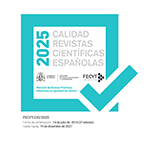"(Dis)Embodied Voices" and (Dis)Appearing Dialects: Staging a Living Historiography of Early African American Women
Abstract
The performance project (Dis)Embodied Voices documented and vivified long-forgotten Early American black women’s experiences by devising a living historiography from personal letters, memoirs, diaries, court records, poems, and newspapers. The nine original monologues became the play I Will Speak for Myself, which recovers sixteen women who lived between 1649 and 1865 from Vermont to New Orleans. By crafting performance through a rigorous investment in the historical evidence and a commitment to truthful depiction in every word and sound, the play enacts life as a free woman, as an indentured servant, and as a former slave. This paper explores the transformation of written texts into the (Dis)Embodied Voices performance script and, specifically, the development of each woman’s distinctive sound. In many ways, these women exemplify the origination of the American sound and each case posed unique issues of evidence, language construction, and dialect choices. Crafting credible identities required striking a delicate balance between scholarly rigor and artistic license, bringing historical research and performance together so that what begin as disembodied voices become distinctive characters that more accurately shape our understanding of the abolitionist movement, life after slavery, and the fight for women’s education and equality.Downloads
Article download
License
In order to support the global exchange of knowledge, the journal Complutense Journal of English Studies is allowing unrestricted access to its content as from its publication in this electronic edition, and as such it is an open-access journal. The originals published in this journal are the property of the Complutense University of Madrid and any reproduction thereof in full or in part must cite the source. All content is distributed under a Creative Commons Attribution 4.0 use and distribution licence (CC BY 4.0). This circumstance must be expressly stated in these terms where necessary. You can view the summary and the complete legal text of the licence.









